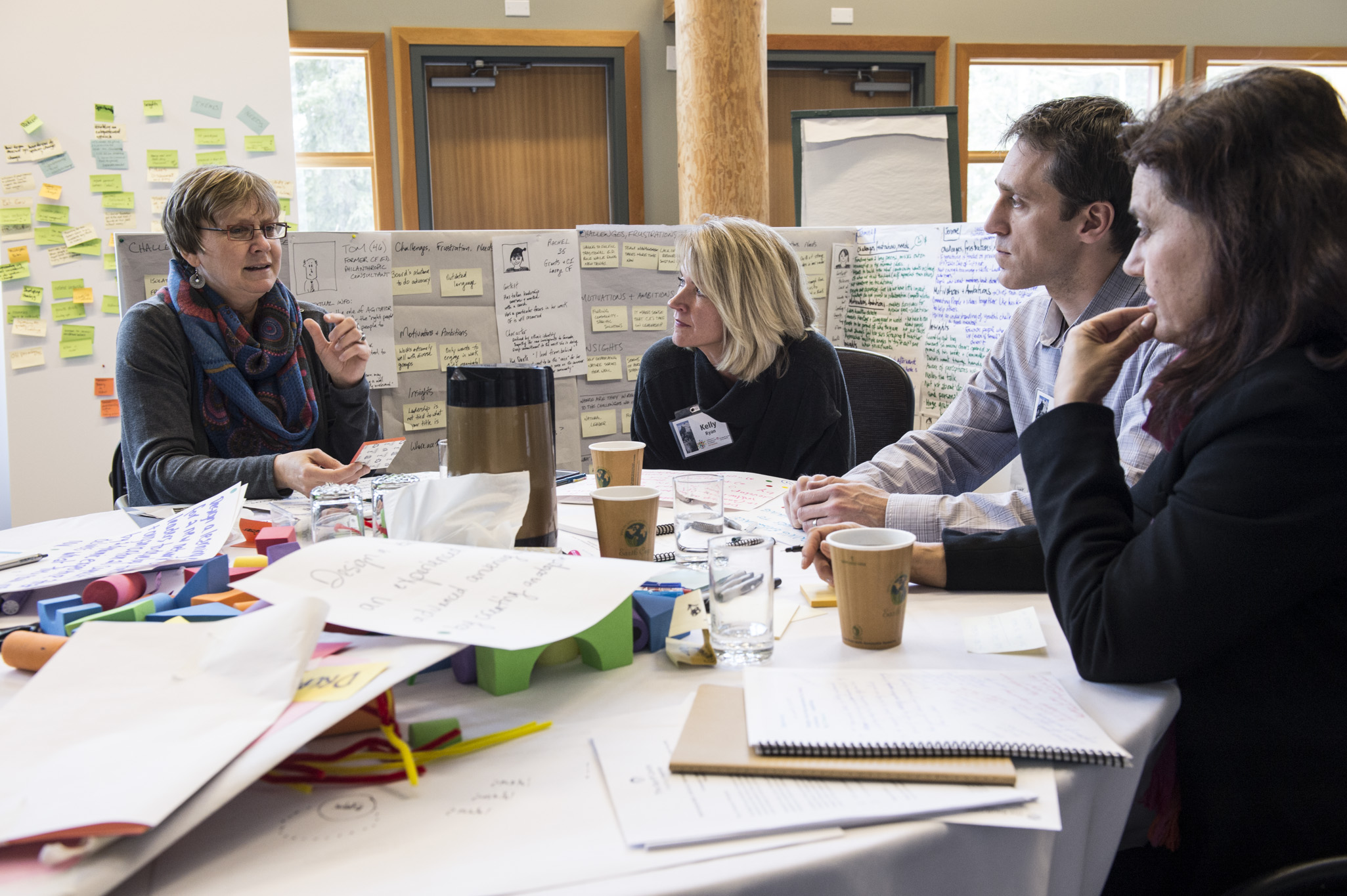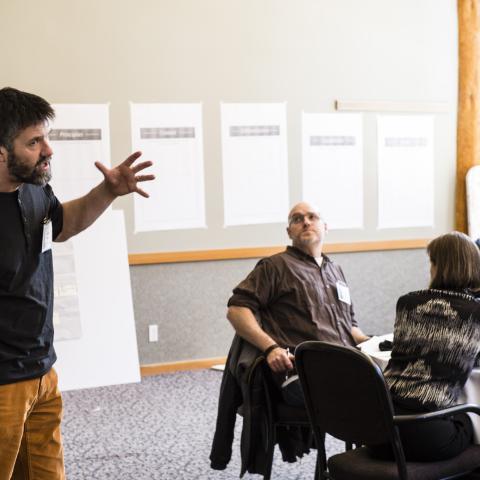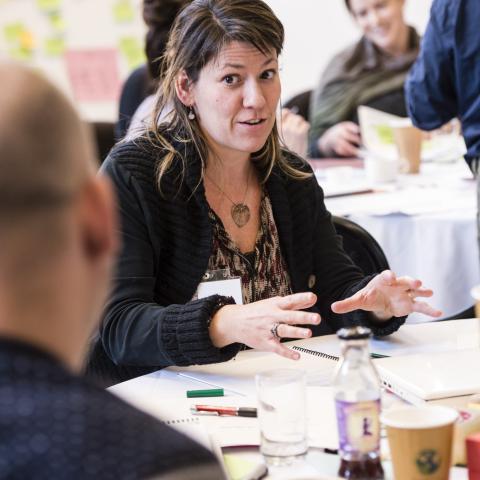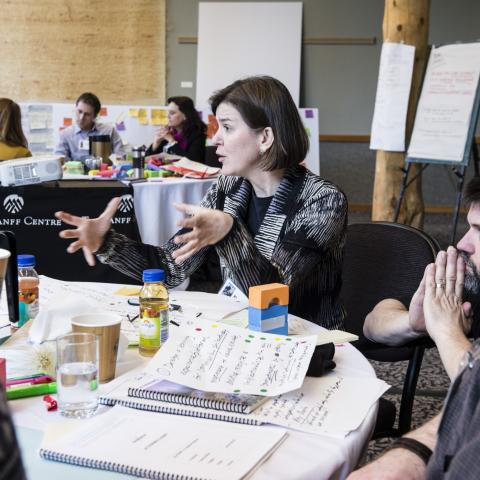What Does Community Leadership Really Need?

What does community leadership need? An ongoing collaboration between Banff Centre for Arts and Creativity and the Community Foundations of Canada is exploring this very question.
Facilitated by Banff Centre for Arts and Creativity faculty members Julian Norris and Jennie Winhall, an intensive 2.5-day Design Studio consisting of senior and emerging Community Foundation leaders and experts in the areas of philanthropy, community engagement, and leadership development gathered to identify potential opportunities, test possible program elements, and generate ideas to inform a customized community-focused leadership program.
“The primary goal working with Banff Centre is to think deeply about what community leadership needs. How do we strengthen a community, not just individuals and organizations? How do we build the capacity of those in a community setting to flourish and bring ideas together?” said Jane Humphries, VP Knowledge and Foundation Development, Community Foundations of Canada.
Prior to the Design Studio, a range of people working in the philanthropic or social sector were interviewed to develop a diverse range of user profiles that reflected potential leaders who could benefit from development for themselves and their communities at large.
“Our challenge was to design a new initiative to build leadership capacity within Canada’s Community Foundation network and, at the same time, model a new paradigm of philanthropy. To be successful, our design team would need to develop a broad perspective on what change-makers need to know and do to influence community action,” said Laurie Edward, program manager, Banff Centre for Arts and Creativity. “We would need to develop a rich understanding of the people that a program would serve and generate powerful insights about how such a program could meet their real wants and needs.”
The Community Foundations of Canada is focused on community vitality, represented by 191 members from coast-to-coast. The organization has more than $3.3 billion dollars in assets collectively and in 2012 granted $143 million dollars to initiatives across Canada. Its aim is to mobilize its network, not just as independent communities, but as a national movement joined with others to tackle some of the biggest challenges facing cities and neighbourhoods. Community Foundations leaders are uniquely placed to drive and steward social innovation and is keenly aware of the need to cultivate leadership capacity within their own domain.
I think what we achieved was a program that allows community members to develop the skills needed to address complex social issues.
Jane Humphries, VP Knowledge and Foundation Development, Community Foundations of Canada
“I think what we achieved was a program that allows community members to develop the skills needed to address complex social issues. The professional development in this initiative allows leaders to gain skills to address all kinds of community issues, it’s not issue focused,” said Humphries. “One of the measures of success for a co-design program is the nimbleness and the ability to be adaptable. That’s what co-design is about. We have shifted and adapted given changing circumstances.”
Workshop participants repeatedly identified the opportunity for program attendees to have a project, challenge, or way to apply learning to real life challenges. One suggestion was that attendees would demonstrate accountability to their home organization by reporting back and involving their team in a project to share the learning and practice newly attained skills. Others suggested less focus in home communities and encouraged collaboration across community foundations by focusing on global challenges or community exchanges.
"This discovery and design process has surfaced rich perspectives about who this program could serve, how it might be delivered and what it might enable program attendees to learn, do and become.," said Edward.
In interviews and discussion with workshop participants, there was a significant focus on the changing nature of philanthropic leadership. Language such as convening, collaborating, and building partnerships across sectors is a change from the silo approach reinforced by more traditional funding models. Workshop participants also expressed the need for experiential learning, with new thinking, personal and community relevance, and real life application necessary components for a dynamic program.
“In my experience, when participants help design what they want to learn about the retention is much higher in adult learning,” said Humphries. “There are lots of programs for individual development and organizational capacity for leaders, but I’ve never seen anything with a community perspective done in such a collaborative way. Those are values that we hold dear and what we want to explore.”
Contact Us
For questions, please contact:
Email:
leadership@banffcentre.ca
Phone:
1.888.255.6327
107 Tunnel Mountain Drive
Box 1020, Stn. 43
Banff, Alberta
T1L 1H5 Canada





